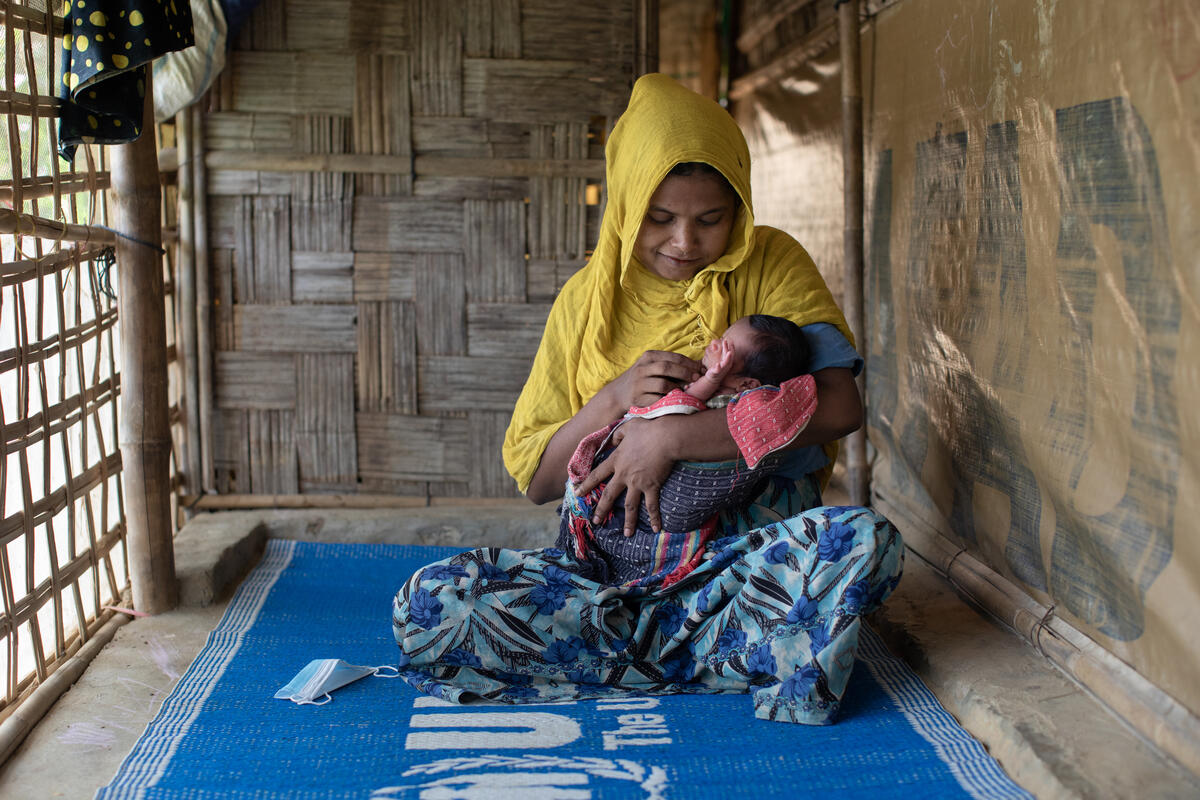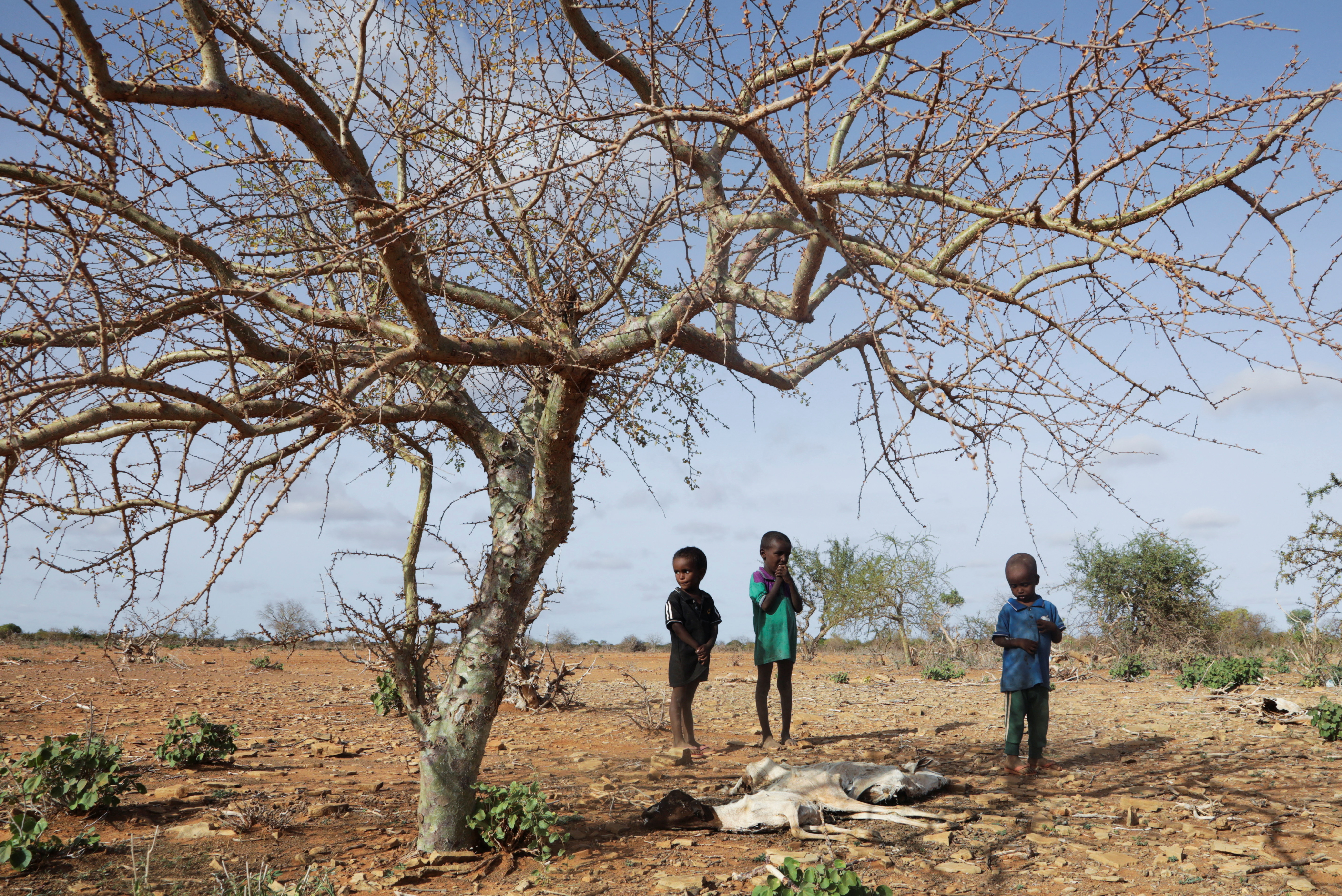New funds bring UNHCR closer to this year's Angola budget
New funds bring UNHCR closer to this year's Angola budget

LUANDA, Angola, Oct 31 (UNHCR) - The UN refugee agency's special budget for Angola came one step closer to completion today with a new $1.8 million contribution from Japan. This still leaves a shortfall of over $3 million that UNHCR hopes donors will fill before the end of the year.
Meeting in Luanda to formalise Japan's contribution today, UNHCR's Representative to Angola, Janvier de Riedmatten, thanked the Japanese Ambassador to Angola, Tsuneshige Iiyama, for his country's generosity.
Earlier this year, the Japanese government had given the refugee agency $3 million to cover the cost of transporting Angolan refugees home from neighbouring Zambia, Namibia and the Democratic Republic of the Congo (DRC).
Today's contribution will go towards the reintegration effort in Angola. Specifically, it will fund 10,000 reintegration kits with plastic sheeting, blankets and kitchen sets; 16,000 construction kits to rebuild homes; and 8,000 agricultural kits with farming tools and seeds.
The money will also cover Portuguese-language training for refugee children to help them integrate into the Angolan education system.
At the ceremony in Luanda, UNHCR's de Riedmatten encouraged the Angolan government to ensure that key areas of return - Moxico, Zaire, Uíge and Kuando Kubango - are included in national development plans to create the necessary conditions for the successful return and reintegration of refugees.
More than 40,000 Angolan refugees have returned home in organised convoys since the start of UNHCR's voluntary repatriation programme in June this year. An additional 160,000 have gone back on their own over the past one-and-a-half years, half of whom have received some kind of direct assistance during the return process.
In all, nearly all returnees are benefiting in one way or another from UNHCR assistance to communities of return in the form of schools, water wells and health centres, among other rehabilitation and reintegration projects.
Those returning in organised convoys spend their first few days at reception centres, where their UNHCR voluntary return forms are stamped and certified. They are then registered by government officials as Angolan citizens. Medical aid is available for those who need it, while returnee children are vaccinated. The returnees also receive training in landmine awareness and information on HIV/AIDS. Before they leave the centres for home, each family is given a repatriation kit with relief items and food aid from the World Food Programme.
Buzzing with activity, the excitement at the reception centres is palpable. Aid workers at the Cazombo centre in eastern Angola say that returnees sing, dance and chant to express their joy at coming home after years of exile. There is an air of festivity as they gather to chat and socialise with other returnees before leaving for their home villages.
However, repatriation is not always a smooth process. Sometimes, the arrival of returnees can lead to tensions as they may overstretch the resources of impoverished communes. To prevent this from happening, UNHCR has stressed the importance of investing in the infrastructure in areas of return. This includes rehabilitating roads, schools, health units and water supplies before large-scale development sets in.
Another obstacle to return is the continued risk of landmines. Angola is one of the most heavily-mined countries in the world, and many areas are still inaccessible due to the presence of mines and other unexploded ordnance. This may eventually slow down the repatriation process as UNHCR only opens areas for return that are deemed safe and where basic social services are available.
The agency does not promote returns to parts of Angola that do not meet minimum conditions for organised repatriation. If returnees insist on going to these areas on their own, UNHCR will give them repatriation kits but will not transport them there.
So far this year, the agency has facilitated the return of about 60,000 refugees - including 20,000 spontaneous returnees - and expects that 15,000 more will be assisted home by year end. Another 145,000 are expected to return with UNHCR help next year.
The UN refugee agency has received $22.8 million out of the $26.2 million it needs to fund Angola's repatriation and reintegration programme in 2003, with needs estimated at about $15 million for next year.







